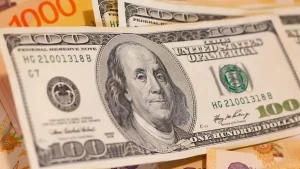As Customs brokers, we are auxiliary agents of commerce and auxiliaries of Customs service. We have to mediate between the importer or exporter and the Customs. That is to say, we represent the person or company importer or exporter in the face of the Customs.
We have to classify merchandise to value it and do calculations to tell to the importer or exporter how much money they must pay to the Customs. It is our job to make Customs declaration and make and transact documents required for foreign trade operations too.
Besides, we must respect the Customs Code which establishes the area in which it applies, the types of destinations, prohibitions, special regimes, types of taxes and refunds, Customs related crimes and penalties, among others provisions.
Some requirements for being a Customs broker are: be of legal age, have an office near the Customs, be registered as a merchandiser, have passed high school, have passed theoretical and practical tests, credit real address and constitute a guarantee.
Customs broking or customs brokerage is a profession that involves the «clearing» of goods through customs barriers for importers and exporters (usually businesses). This involves the preparation of documents and/or electronic submissions, the calculation and payment of taxes, duties and excises, and facilitating communication between government authorities and importers and exporters. Custom brokers may be employed by or affiliated with freight forwarders, independent businesses, or shipping lines, importers, exporters, trade authorities, and customs brokerage firms.
The documents which are required for exportations and importations are import request, import clearance, shipping permit, commercial invoice, packing list, certificate of origin, document of transport that is bill of lading by seaway, way bill by land and flight guide by aireway, application form OM 1993 and other special certifications.
Moreover, the ways of paying are three: letter of credit, which is the most secure, import billing, and wire transfer that is the fastest.
The MERCOSUR Common Nomenclature is used to classify products, assigning each a single tariff position. This nomenclature orders the merchandise that can be transported according to their degree of elaboration, according to the criteria of origin, raw materials used in their manufacture, nature of the product and function. At the beginning is located the index that contains in detail the 21 sections, which in turn are divided into chapters, and these into items. The tariff position consists of heading, subheading of the Harmonized System, the regional subheading, the SIM and the digit control. The nomenclator contains notes of section, chapter, subheading, and according to their function, notes of exclusion, inclusion and definition.
The SIM allows the operator to search Import and Export, indicating the period date of official recognition, as well as customs registration, route of entry, countries of provenance and origin, the status of merchandise, taking into account that the only requirement is to know the tariff position.
Additionally, the customs office is a public government office, apart from being a fiscal constitution, located at strategic points, usually coasts, boundaries, military zones or international terminals transportation of goods or persons such as airports, being the one in charge of the control of this office foreign trade operations with the aim of registering the international traffic of goods imported and exported from a particular country and collect taxes established by customs, it could be said that customs were created to collect that tax and on the other hand, regulate merchandise whose nature could affect national production, public health, peace or safety of a nation.
Furthermore, in some countries the custom is not only limited to the control of goods, but rather on it human trafficking or also regulates the control of capital.
We can include the missions developed of Customs control organisms in the following:
- Fiscal: Through the application and enforcement of certain rights Import / Export (tariffs) to the introduction or departure of the goods.
- Security: Closely linked to the above, avoids customs fraud and combat smuggling (whether drugs, weapons, historical heritage, etc.).
- Public Health: Controls the entry of animals, food, toxic waste, etc. which could pose a danger to public health of civilians.
- Statistics: Elaborate foreign trade statistics.
Any import or export of goods is subject to a customs office in which can be demanded payment of customs duty.
The duty called Customs Tariff. Worldwide, the vast majority of countries use the Harmonized System for Commodity Description and Coding System of the World Customs Organization to classify the goods and determine the duties applicable to each. These rights are exclusive of governments, and represent a useful source of income for public finances.
Customs duties are exerted on foreign goods entering the country, on leaving the country, or those who come from abroad and temporarily pass the national ports as export. In order to protect national production by rising through these taxes on foreign goods. This favours national product curb abroad, since part on more favourable terms when offering a more competitive price in the national market. This protection, taken to the extreme, is known as protectionism.
Currently in the customs office not only accrues and requires payment of tariffs, but also restrictions and non-tariff regulations, which apply in cases of unfair practice Foreign Trade (price discrimination, subsidies, etc.) and also the indirect taxes on consumption (value added) or excise (excise).
The Customs Agent or Customs Broker is the natural or legal person, duly authorized by their respective customs authorities, acting with the appropriate authorities (customs, ministries, and other private or public entities) in the name and on behalf of a third party that contracts its services and gives an authenticated and permanent power in the steps of an import operation, export or transit.
According to various laws is established as an auxiliary of the customs administration.





